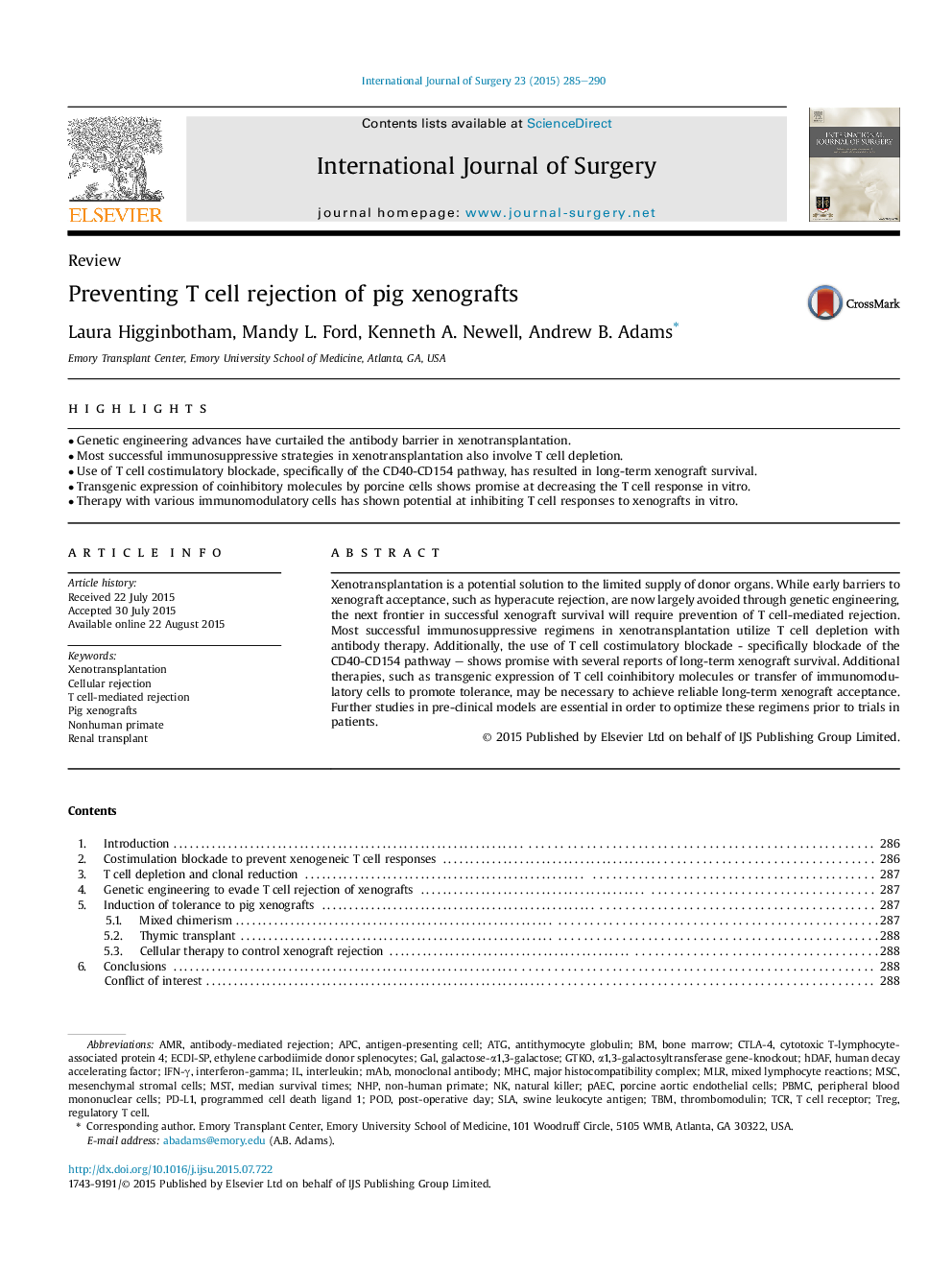| کد مقاله | کد نشریه | سال انتشار | مقاله انگلیسی | نسخه تمام متن |
|---|---|---|---|---|
| 4285727 | 1611967 | 2015 | 6 صفحه PDF | دانلود رایگان |

• Genetic engineering advances have curtailed the antibody barrier in xenotransplantation.
• Most successful immunosuppressive strategies in xenotransplantation also involve T cell depletion.
• Use of T cell costimulatory blockade, specifically of the CD40-CD154 pathway, has resulted in long-term xenograft survival.
• Transgenic expression of coinhibitory molecules by porcine cells shows promise at decreasing the T cell response in vitro.
• Therapy with various immunomodulatory cells has shown potential at inhibiting T cell responses to xenografts in vitro.
Xenotransplantation is a potential solution to the limited supply of donor organs. While early barriers to xenograft acceptance, such as hyperacute rejection, are now largely avoided through genetic engineering, the next frontier in successful xenograft survival will require prevention of T cell-mediated rejection. Most successful immunosuppressive regimens in xenotransplantation utilize T cell depletion with antibody therapy. Additionally, the use of T cell costimulatory blockade - specifically blockade of the CD40-CD154 pathway – shows promise with several reports of long-term xenograft survival. Additional therapies, such as transgenic expression of T cell coinhibitory molecules or transfer of immunomodulatory cells to promote tolerance, may be necessary to achieve reliable long-term xenograft acceptance. Further studies in pre-clinical models are essential in order to optimize these regimens prior to trials in patients.
Journal: International Journal of Surgery - Volume 23, Part B, November 2015, Pages 285–290